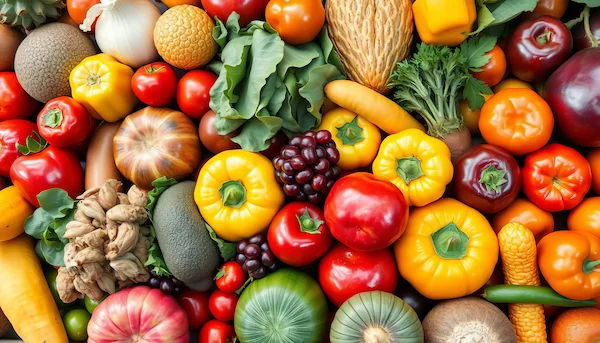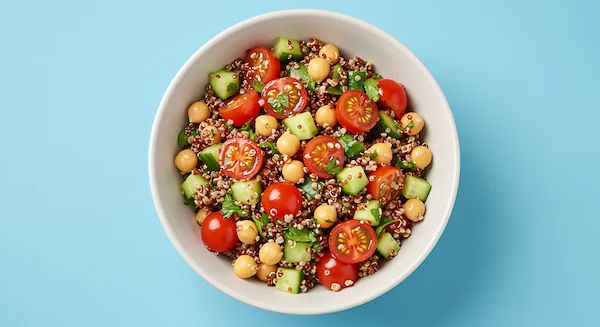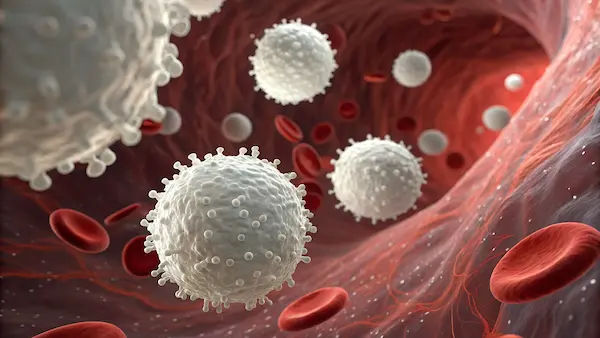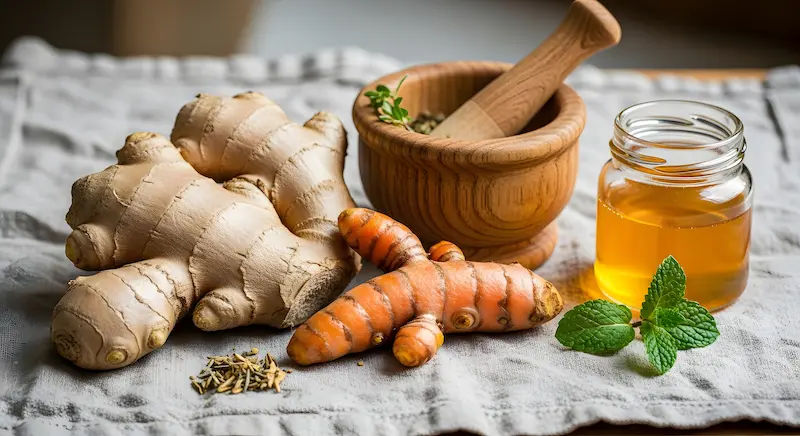Your Surgery Diet: What to Eat Before and After for Faster Recovery
Discover how to optimise your nutrition before and after surgery for faster healing. Learn the best foods to eat, what to avoid, and tips to support recovery and reduce complications.


Introduction
Facing surgery can be daunting, with much focus on the procedure itself. But one of the most powerful tools for a successful outcome is often overlooked: your diet. What you eat before and after surgery plays a critical role in how well you prepare your body for the stress of an operation and how quickly and effectively you heal afterwards. Proper surgery nutrition isn't about a drastic diet; it's about strategically fueling your body with the right building blocks. This comprehensive guide will walk you through the essential nutritional phases, from pre-op preparation to post-op recovery. We'll cover the best foods to promote healing, what to avoid, and how to manage common side effects, empowering you to take an active role in your surgery recovery journey.
Why Nutrition is Your Secret Weapon for Surgery Success
Surgery is a controlled trauma. Your body's response is to initiate a complex healing process that demands significant energy and specific nutrients. Think of food as the raw material for repair. Without the right materials, construction slows down.
How Food Prepares Your Body for the Operation
In the weeks leading up to surgery, your goal is to build up your nutritional reserves. A well-nourished body has a stronger immune system, better energy stores, and optimal organ function, all of which help you withstand the physiological stress of anaesthesia and the procedure itself. Good pre-op nutrition can even influence your risk of complications.
How Nutrients Power the Recovery Process
After surgery, your body goes into overdrive. It needs protein to rebuild tissue, carbohydrates for energy, vitamins to fight infection and reduce oxidative stress, and minerals to form new blood cells and bone. The right post-surgery diet directly supports wound healing, reduces inflammation, preserves muscle mass, and restores your strength.
Consult a Dietitian or Nutritionist for the best advice
The Pre-Surgery Diet: Fueling Up for the Operation
The 2-4 weeks before your operation are your window to nutritionally prime your body. Focus on whole, nutrient-dense foods.
Key Nutrients to Focus On (The Building Blocks)
- Protein: The Tissue Repair Champion: Protein is essential for making immune cells, enzymes, and the collagen that forms new tissue. Aim for lean sources like chicken, fish, eggs, tofu, lentils, and Greek yogurt.
- Complex Carbs: Your Energy Reserve: Carbohydrates stockpile glycogen, your body's primary energy source. This helps power you through the procedure and recovery. Choose whole grains, oats, quinoa, sweet potatoes, and fruits.
- Vitamins & Minerals: The Healing Catalysts:
- Vitamin C is crucial for collagen formation and immune function (citrus, bell peppers, broccoli).
- Zinc supports wound healing and immunity (nuts, seeds, whole grains, meat).
- Iron is vital for making new red blood cells to replace any lost during surgery (lean red meat, spinach, legumes).
The Crucial Pre-Op Fast: Why It's Mandatory
Despite the advice to "fuel up," your doctor will instruct you to fast (no food or drink) for typically 8-12 hours before anaesthesia. This is non-negotiable. An empty stomach prevents the dangerous risk of aspirating stomach contents into your lungs while you are sedated. Always follow your surgical team's specific fasting instructions.
The First 24-48 Hours Post-Surgery: The Recovery Launchpad
Your digestive system will be sluggish from anaesthesia. The goal here is gentle reintroduction.
Managing Nausea and Easing Back into Eating
Start with clear liquids: Water, clear broth, apple juice, electrolyte drinks, and gelatin. Sip slowly. If these are tolerated, gradually move to bland, easy-to-digest soft foods. The BRAT diet (Bananas, Rice, Applesauce, Toast) is a classic for a reason, though it shouldn't be followed for more than a day due to low nutrient density.
The Golden Rule: Hydration, Hydration, Hydration
Anaesthesia, pain medications, and the body's healing process can lead to dehydration. Adequate fluids are essential for maintaining blood pressure, delivering nutrients to the wound site, and helping flush anaesthesia from your system. Aim to sip water consistently throughout the day.
The Recovery Phase Diet: Building Back Stronger (Week 1 and Beyond)
As your appetite returns, shift your focus to a nutrient-packed diet for wound healing.
The Power of Protein for Wound Healing and Strength
Aim for 20-30 grams of high-quality protein per meal to provide the amino acids needed to repair tissue and prevent muscle loss. Excellent sources include:
- Greek yogurt or cottage cheese
- Eggs and lean poultry
- Fish (salmon is also rich in anti-inflammatory omega-3s)
- Lentils and beans
- Protein shakes (if chewing is difficult or appetite is poor)
- Fiber-Rich Foods to Manage Post-Surgery Constipation
Pain medications (especially opioids) are a common cause of constipation. Counteract this by incorporating high-fiber foods like prunes, pears, oats, berries, and steamed vegetables. Remember to increase fiber intake along with fluids.
Anti-Inflammatory Foods to Reduce Swelling
Inflammation is a natural part of healing, but excessive swelling can slow recovery. Incorporate foods like fatty fish, walnuts, berries, leafy greens, and olive oil to help modulate the inflammatory response naturally.
Foods and Habits to Avoid During Your Recovery
Just as some foods help, others can hinder.
- Inflammatory Foods: Highly processed foods, sugary snacks and drinks, and excessive saturated fats can promote inflammation and provide empty calories.
- Alcohol: It can interact negatively with pain medications, dehydrate you, impair immune function, and slow healing.
- Certain Supplements: Inform your surgeon of all supplements. Some, like garlic, ginkgo, ginseng, and vitamin E, can increase bleeding risk.
Special Considerations: Diets for Specific Surgeries
Your surgeon or a registered dietitian will provide tailored advice.
- Soft Food Diet: Common after dental surgery, tonsillectomy, or abdominal procedures. Think mashed potatoes, scrambled eggs, smoothies, hummus, and well-cooked pasta.
- Gut-Friendly Diet: After gastrointestinal surgery (e.g., colon resection), you may be placed on a low-fiber or specific carbohydrate diet initially to allow the gut to rest, gradually reintroducing foods.
Conclusion: Nourish Your Way to a Smoother Recovery
Your journey through surgery doesn't end when you leave the operating room; it continues through every meal you eat during recovery. By viewing food as essential medicine, you empower your body's innate healing abilities. A strategic surgery diet, rich in protein, vitamins, and hydrating fluids, provides the foundation for repairing tissue, fighting infection, and regaining your energy and strength. While this guide provides a strong framework, remember that your surgical team's instructions are paramount. Listen to your body, be patient with your progress, and give yourself the best possible chance for a smooth and swift recovery by choosing foods that truly nourish.
Consult a Dietitian or Nutritionist for the best advice
Consult a Dietitian or Nutritionist for the best advice

Ms. Soma Saha
clinical nutrition
17 Years • B.Sc. - Home Science (Food & Nutrition), M.Sc. - Home Science (Food & Nutrition)
Kolkata
Dr Utsa Basu Clinic, Kolkata
(50+ Patients)

Ms. Samapti Maity
Dietician
16 Years • MSc. (Clinical Nutrition & Dietitics), NDEP, Course in Maternal Infant Young Child Nutrition.Diploma in Sports Nutrition, Diploma in Diabetic educator, FODMAP Specialist
Kolkata
BIENETRE CLINIC, Kolkata

Ms Suchanda Guha
Dietician
10 Years • M.Sc (Applied Nutrition), B.Sc (Food & Nutrition), Diploma (Yogic Nutrition)
Kolkata
NutriKutir, Kolkata

Ms Divya Gandhi
Dietician
10 Years • Diploma in Nutrition and Dietetics
Delhi
Diet and Cure, Delhi
(325+ Patients)

Dt Ankita Gupta
Dietician
15 Years • MSC Foods & Nutrition
Hyderabad
Dt. Ankita Gupta's Diet & Weightloss Clinic, Hyderabad
Consult a Dietitian or Nutritionist for the best advice

Ms. Soma Saha
clinical nutrition
17 Years • B.Sc. - Home Science (Food & Nutrition), M.Sc. - Home Science (Food & Nutrition)
Kolkata
Dr Utsa Basu Clinic, Kolkata
(50+ Patients)

Ms. Samapti Maity
Dietician
16 Years • MSc. (Clinical Nutrition & Dietitics), NDEP, Course in Maternal Infant Young Child Nutrition.Diploma in Sports Nutrition, Diploma in Diabetic educator, FODMAP Specialist
Kolkata
BIENETRE CLINIC, Kolkata

Ms Suchanda Guha
Dietician
10 Years • M.Sc (Applied Nutrition), B.Sc (Food & Nutrition), Diploma (Yogic Nutrition)
Kolkata
NutriKutir, Kolkata

Ms Divya Gandhi
Dietician
10 Years • Diploma in Nutrition and Dietetics
Delhi
Diet and Cure, Delhi
(325+ Patients)

Dt Ankita Gupta
Dietician
15 Years • MSC Foods & Nutrition
Hyderabad
Dt. Ankita Gupta's Diet & Weightloss Clinic, Hyderabad
More articles from Diet for Immunity Boosting
Frequently Asked Questions
What are the best soft foods to eat after surgery?
Excellent soft foods include Greek yogurt, scrambled eggs, mashed sweet potatoes, oatmeal, smoothies, cottage cheese, well-cooked lentils in soup, hummus, and flaky fish like salmon. These provide protein and nutrients without requiring much chewing.
How can I avoid constipation after surgery?
The most effective strategy is a combination of hydration and fiber. Drink plenty of water and prune juice. Incorporate high-fiber foods like oats, berries, and steamed vegetables as soon as your doctor approves. Gentle movement, like short walks, can also stimulate bowel function.
Why is protein so important after a surgical procedure?
Protein is broken down into amino acids, which are the literal building blocks for new skin, muscle, and tissue at the wound site. Without adequate protein, the body's ability to heal efficiently is significantly compromised, leading to slower recovery and potential loss of muscle mass.
What should I drink after surgery besides water?
Besides water, focus on hydrating and nutrient-rich options like electrolyte drinks (to replenish minerals), clear broths (for sodium and comfort), coconut water, and milk or protein shakes (for added protein and calories).
When can I return to my normal diet after surgery?
There's no universal timeline. It depends on the type of surgery, how your body is healing, and how your digestive system is tolerating food. Always follow your surgeon's specific guidance. Generally, you will gradually advance from liquids to soft foods to solid foods over days or weeks.




